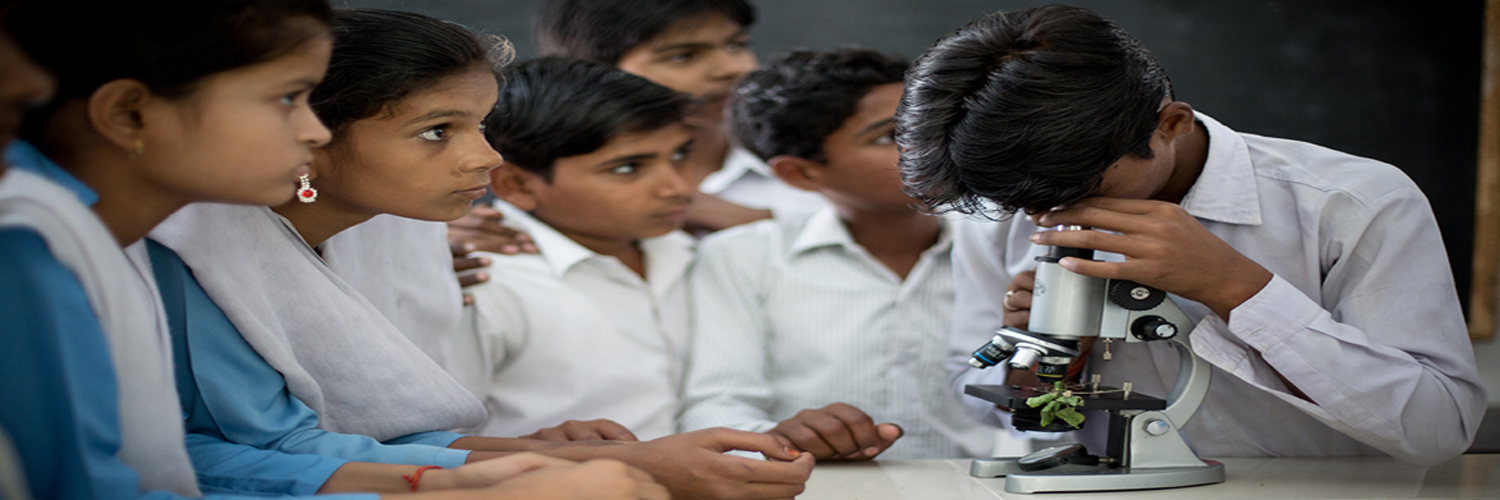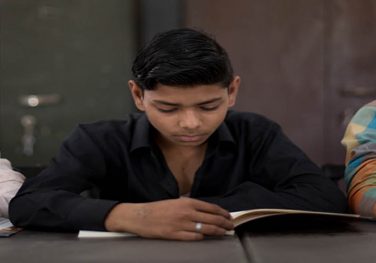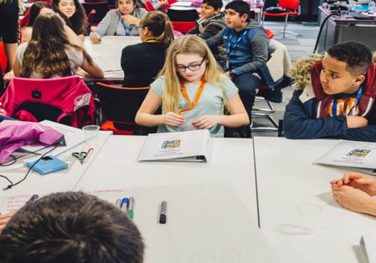Collaborative Research and Dissemination evaluation
Learning lessons from the Kusuma Schools Partnership Initiative
We’ve been supporting education projects in India for well over a decade, so that more young people can receive aquality education – especially those who are the most difficult to reach.
Between 2013 and 2018, our partners in India, Kusuma Foundation, ran the Kusuma Schools Partnership Initiative, aholistic school improvement programme. The initiative worked with 50 government secondary schools in Hardoi andSambalpur to improve their facilities, educational resources, teaching practices and, ultimately, student attainment.
By working in partnership with schools, Kusuma Foundation was able to develop a sustainable model that could beadopted by State governments, bringing about widespread and lasting change.
By 2018, the scaled-up elements of the initiative had reached more than 78,000 schools and nearly 2 million studentsand teachers.
When it concluded, we commissioned independent education researchers Collaborative Research and Dissemination(CORD) to evaluate the programme. The evaluation helped identify lessons learned from delivering this ambitiousexperiment, and highlighted examples of good practice that we could share with decision-makers at the State andnational level in India.
- The Kusuma School Partnership Initiative provided intensive support to Science, Maths and English teachers inSambalpur and Hardoi, as well as learning materials and extra classes for Class 9 and 10 students to help them reachthe required standard for secondary school.
- CORD’s evaluation suggests that the Kusuma School Partnership Initiative has succeeded in improving studentlearning. It reached more than 78,000 schools and nearly 2 million students and teachers.
- Lessons learned from the Kusuma Schools Partnership Initiative are being taken forward by the core team at Kusuma Foundation, which set up Transform Schools, People for Action, with financial support from the Kusuma Trust UK until 2022.

Improving student learning
The evaluation, completed in 2019, emphasised the achievements and challenges of working with governmentpartners, teachers and students to improve the secondary education system. These included:
- Students enjoyed the interactive teaching styles of Kusuma’s Volunteer Teachers, who were trained andsupported by Kusuma Foundation, and said that Kusuma’s learning resources helped them to understand keyconcepts and review lessons in their own time.
- The governance training programme helped school governing bodies to be better informed about their roles andresponsibilities.
- Head teachers had a pivotal role in supporting community members to participate in school governance, butmost schools needed post-training support to put new learning into practice.
- Evidence showed that, overall, when students took part in the Secondary School Readiness Programme (nowcalled Transform Learning Improvement Programme) their test scores improved. This suggests that the KusumaSchool Partnership Initiative has succeeded in improving student learning.
For more key findings, download the report here
“Kusuma Trust’s long-term interventions with 50 schools – and their commitment to research, evidence, and bringing about lasting change – has created a strong learning ground for the team at Kusuma Foundation. This credo has held me and my team in good stead as we build Transform Schools and seek outsized impact on education in India.”
More Success Stories

JPAL: Evaluation of our Secondary School Readiness Programme

LSE: Impact of our Secondary School Readiness Programme

